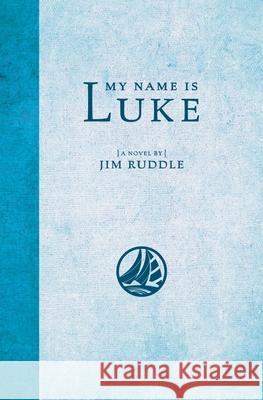My Name is Luke » książka
My Name is Luke
ISBN-13: 9781937484200 / Angielski / Miękka / 2014 / 216 str.
"Silver Medal Winner, Historic Fiction YA, 2014 Literary Classics Awards"
On a quiet day in 1858, two desperate men hijack a schooner from the Marblehead, Massachusetts harbor. Trapped aboard his grandfather's boat is fifteen-year-old Luke Constance. He is a normal kid who plays pranks on the townsfolk and has a crush on Agatha, his classmate. But Luke is not ordinary-very well versed himself, he reads aloud to workers in small, local shoemaking shops. And he knows more about sailing schooners than most seasoned seamen. Told by Luke with wry humor and a teenager's sense of fun, this extraordinary adventure confronts the sea's wrath and men's foibles and the violent rage of both. In the end, Luke needs every bit of his wit, learning, and resourcefulness to survive.
"KIRKUS REVIEWS"
www.kirkusreviews.com
A heartwarming adventure tale about sailing, boyhood and 1850s America.
Ruddle's debut novel centers on Luke Constance, a plucky young boy living in Marblehead, Massachusetts, in 1858. Luke, an extremely precocious and well-read 15-year-old kid, lost both of his parents years ago, so he lives with his grandparents Mike and Ellen. Mike owns and runs a business on a boat, the Mary Constance, and the book's early chapters chronicle entertaining tales of Luke working and playing on it. There are also charming stories of Luke's everyday life in Marblehead, including mischief involving teachers at his school and neighbors in town. The plot picks up after Luke falls asleep on the Mary Constance, waking just as two crooks hijack the boat and sail it out to sea. After he's discovered, Luke must figure out how to keep himself and the crooks alive, as the hijackers' sailing knowledge is limited and the New England waters and weather are anything but predictable. In this heartwarming tale about growing up in New England in the mid-19th century, Ruddle includes plenty of interesting information about the sea and the colorful people who work on it: "The fellows out on the fishing boats believe stuff that can make you roll your eyes. Like if you get a hook in your finger, you should stick the hook in something-a rail or mast, maybe-because that will heal your finger quicker." It's also packed full of historical information, which the author weaves seamlessly into the narrative; at one point, for example, Luke talks about national strife and the just-invented telegraph: "You could work that telegraph until the wires started to smoke, and it wouldn't make folks love each other."
An educational, engaging story about 19th-century New England that's particularly suited for readers passionate about sailing."











